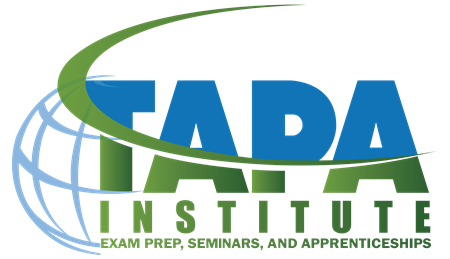Review, Relax, Reinvent: Managing Stress During the CPA Exam
The CPA exam looms, a giant test standing between you and your dream career. Excitement for such a situation is natural. Loads of material, pending deadlines, and the pressure to succeed can make even the calmest person break into a sweat. But don't worry, aspiring CPAs: mastering the art of stress management is your secret weapon for turning test practice from an anxious marathon into a confident stride toward achievement.
Why Managing Stress Matters:
Consider your brain to be an elite sportsman. It feels like a weighted rucksack during a marathon when tension sets in. Your performance declines as you get weary and disoriented. Exam anxiety clouds your judgment and memory, making it difficult to recall crucial information. You can think critically and use your information successfully if you maintain your composure. Irresistible distractions occur when stress takes control. Keeping things under control helps you focus intently on the work at hand and prevents you from being overwhelmed.
Exam anxiety can breed self-doubt, impacting your belief in your abilities. You may approach the test with confidence and a good outlook if you know how to effectively control your stress. Your physical and emotional health suffer greatly from ongoing stress. Learning healthy coping mechanisms protects your well-being throughout your journey.
Delving Deeper into the Roots of CPA Exam Stress: Understanding Your Anxieties
Although the typical causes of CPA test stress were stated in the preceding part, let's examine the underlying causes in more detail and how they differ for each individual:
Workload Woes: Being overloaded with practice questions, notes, textbooks, and mock tests may make one feel as though they are drowned in a sea of knowledge. Self-doubt and feelings of inadequacy might be exacerbated by witnessing others study almost nonstop or by discussing their seemingly ideal study schedules. Anxiety and shame might arise from the continual pressure to adhere to a rigorous study schedule, particularly if unforeseen circumstances cause you to stray from your plan.
The Unknown Factor: Apprehension and uneasiness over the exam's content and degree of difficulty might arise from not understanding the precise structure and approach. During practice examinations or mock exams, you may run into unusual question types that make you feel anxious and unsure of your ability to face the real exam. The inability to accurately predict your score based on practice tests can lead to anxiety about potentially underperforming.
The Pressure Cooker: The exam's high stakes and possible influence on your professional objectives might lead to performance anxiety and extreme pressure. A further source of stress and disappointment-related anxiety might come from feeling pressure to achieve from friends, family, or employers. The significant cost of exam fees and preparatory materials can generate financial anxiety and pressure to succeed to justify the investment.
The Fear of Failure Monster: The prospect of failing the test and disappointing everybody, including yourself, may be extremely demoralizing and emotionally taxing. Your efforts and confidence may be hampered by the self-fulfilling prophecy that you are not intelligent enough or capable of passing. Defining your self-worth based solely on passing the exam can lead to feelings of worthlessness and identity crisis if you don't succeed on the first attempt.
The Comparison Trap: Constantly seeing others celebrating their exam success or sharing their seemingly effortless study habits can fuel self-doubt and feelings of inadequacy. It can be harmful to put undue pressure on yourself and become discouraged from comparing your study progress or pace to those of people with various learning styles or situations. Obsessing over other candidates' scores or study methods can distract you from your own path and hinder your focus on personal improvement.
Recognizing your individual stress triggers and understanding the different ways they manifest is crucial for choosing appropriate coping mechanisms and effectively managing your anxiety. With self-awareness and the right tools, you can transform stress from a hindrance into a motivator, propelling you toward your CPA dreams.
Steps to Stress Management Mastery:
Acknowledge your stress: Ignoring it won't make it disappear. Identify your stress triggers and how they manifest (racing heart, sweaty palms, etc.)
Develop healthy coping mechanisms: Find what works for you! Exercise, meditation, deep breathing, yoga, spending time in nature, or creative hobbies can all be powerful stress relievers.
Practice mindfulness: Be present in the moment, focusing on your breath and calming your thoughts. Apps like Headspace or Calm can guide you through mindfulness exercises.
Create a realistic study plan: Overambitious goals and last-minute cramming are stress magnets. Plan achievable daily/weekly tasks and stick to them.
Prioritize sleep: When stressed, sleep suffers, and a sleep-deprived brain struggles to learn and retain information. Aim for 7-8 hours of quality sleep each night.
Talk it out: Share your anxieties with friends, family, or a therapist. Talking can help you process emotions and gain a different perspective.
Seek professional help: If stress feels overwhelming, reach out to a therapist or counselor for personalized guidance and support.
Tips Exam Day:
Practice relaxation techniques: Do some deep breathing or mindfulness exercises before entering the exam hall.
Visualize success: Imagine yourself calmly and confidently tackling the exam.
Focus on the present: Don't dwell on past questions or worry about future ones. Just focus on the problem at hand.
Take breaks: Step outside for some fresh air or do some quick stretches to clear your head.
Remember, it's just an exam: While important, it doesn't define you. Take a deep breath and trust your preparation.
Stress management is a journey, not a sprint. Try several things, see what suits you, and treat yourself with kindness. You may use the correct resources and persistent work to turn stress into a driving force that will help you succeed as a CPA. Now strike forth and conquer!

